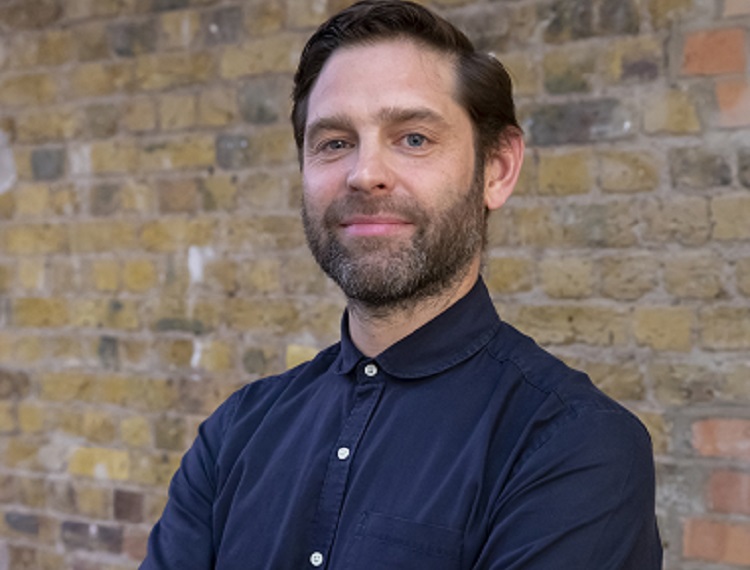How to deliver a category defining experience as a Higher Education institute

The Covid-19 pandemic has had a major impact on the financial health of the higher education sector, with a number of core areas affected[1]. However, this has given institutions the opportunity to innovate in order to survive and in many cases thrive, when facing arguably their biggest challenge yet.
Laurence Parkes, CEO at design and technology agency Rufus Leonard, explores how HE institutes can redefine engagement with technology and create a plan that delivers an industry-defining student experience.
Redefine engagement through use of technology
As we learn it could take up to five years for the country to recover from the effects of the pandemic[2], it is essential that HE institutes are prepared and able to deliver services in new ways. There are three particular areas that technology can be used to improve services and efficiency: applications, learning, and graduate outcomes. Across all of these areas, HE institutes need to invest in value innovation, i.e., changes to the service they give that drives value for students while being cheaper to supply.
Students are generally digital savvy and therefore the use of technology was already prominent in the HE process. However, Covid-19 accelerated digital behaviours and amplified the importance of empathetic experiences[3]. Current behaviours explicitly show the need for a clear, personal and responsive relationship. Getting this right for learning experiences, will provide a brilliant opportunity for universities to deliver genuine value to students and boost its reputation simultaneously – positively impacting both applications and graduate outcomes.
Before the pandemic, for many HE institutes, engagement and attendance were often synonymous: a student’s participation in a course was measured by whether or not they turned up in person to lectures or classes. When no one can be physically present, we were forced to redefine what engagement truly means. As we move forward, the focus needs to be on finding the right mix of hybrid teaching which enables the best of digital convenience with rich face-to-face experiences. Done well, these innovations can also help in other areas, for example social mobility where a hybrid style of teaching can be more accessible to students with limits to their travel.
Use new digital experiences as inspiration for the future
The last year has provided numerous points of inspiration from across the sector, as HE institutes were forced to rapidly innovate to remote working to ensure they could continue providing their services through lockdown. From new, student-authored digital artifacts, virtual learning environments, virtual peer reviews and even virtual field trips. Personal highlights include, University of Birmingham’s new virtual tour, which allows an unlimited number of people to explore BIFoR’s complex scientific site. As well as Quantic’s switch from location-based events to online events that enriched the curriculum and brought students from all cohorts together. (Quantic School of Business & Technology are a pioneer of online, mobile-first graduate education disrupting the MBA market, so a good place for digital-service inspiration in itself as well as its response to Covid.)
What the best sector examples demonstrate is that purpose, empathy, and tech infrastructure are the keys to creating differentiated and meaningful experiences.
Embracing a test and learn mindset, student partners, and flexible technology
This next phase will be one of experimentation. HE institutes must enter it with a test and learn mindset, anticipating failure and the need to course correct. Before then investing in technology once it has been tested with cost effective prototypes. This will help ensure new experiences and services will actually deliver the return on investment needed to justify their cost. A ‘test and learn mindset’ looks like:
- Creating empowered decision-making teams that have people at opposite ends of opinion on a particular subject and ask them to agree a solution
- Premortems which get the team to imagine what might go wrong to try to avoid issues
- Intentionally failing things early through a plan that stress-tests a solution, with the hardest tests first
To ensure your digitally enabled learning experiences are truly empathetic to your students, combine experimentation with a user-centric mindset, making your students a partner. (An impeccable example is The University of Colorado Boulder’s ASSETT ‘Students as Partners’ framework.) One way to do this is with co-creation workshops. Co-creation workshops are hugely valuable because they bring the perspective of end users into the design process at the conceptual stage. This invariably uncovers new ideas for features and functionality, but just as importantly, it exposes misconceptions early in the process. It’s likely that at least some of your initial hypotheses about what students need, or how they’ll interact with an experience will need rethinking.
Once you’ve decided which experiments are worth investing in, you’ll want to ensure changes to your tech stack are future fit. Flexibility is key when designing a future-proofed technical architecture. At Rufus Leonard we frequently recommend the MACH approach (Microservices, APIs, Cloud Native and Headless CMS) because it allows you to choose the best of breed technologies, add elements independently to enable rapid innovation and carry out upgrades/maintenance more efficiently and cheaply. Helping you navigate future change, seamlessly.
HE institutes have the raw materials to be experience driven. As hybrid learning experiences are here to stay, the institutes who reimagine engagement with technology will reap the rewards in the length, breadth and depth of its relationship with students – helping tackle the financial challenges Covid left in its wake.
Laurence Parkes, CEO at Rufus Leonard
[1] https://www.ifs.org.uk/uploads/BN300-Will-universities-need-bailout-survive-COVID-19-crisis-1.pdf
[2] https://www.ifs.org.uk/uploads/BN300-Will-universities-need-bailout-survive-COVID-19-crisis-1.pdf
[3] https://www.forbes.com/sites/briansolis/2020/07/09/in-an-era-of-covid-19-disruption-brands-must-rethink-marketing-as-empathetic-customer-experiences/#2c9c02757aa1












Responses